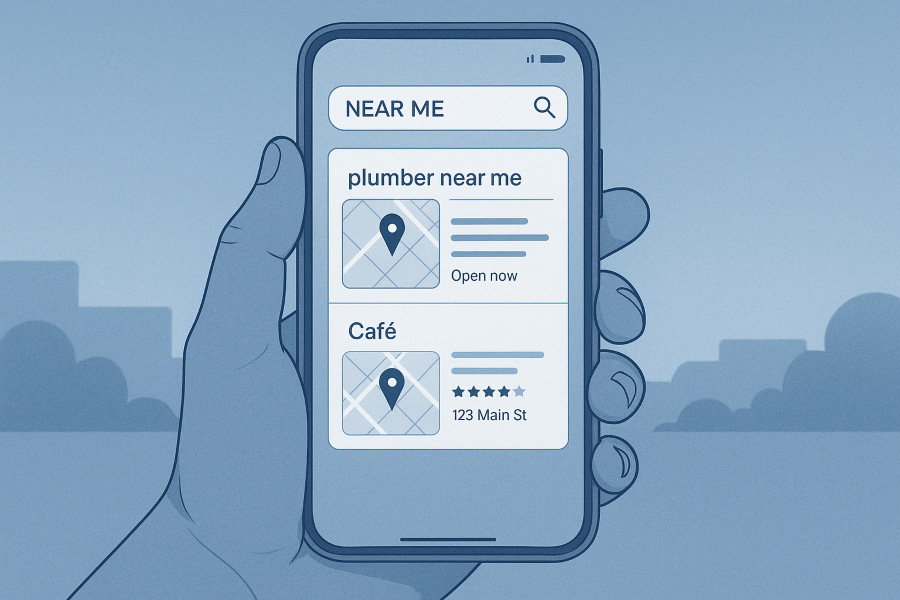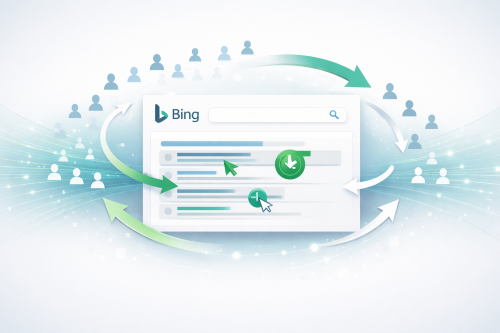Geo targeted traffic can transform your local marketing by sending the right visitors to your site. You’ll learn what geo-targeting is why it matters and how to boost your Google Business Profile click-through rate with precision.
What is geo-targeting
Geo-targeting means serving content to users based on their location. Unlike geofencing, which triggers actions within a virtual boundary, geo-targeting uses IP addresses or device signals to tailor your message. You may also see geo-targeting called location targeting or geo-location targeting.
With geo-targeting SEO, you place geographic keywords in headings meta tags and content. Those terms, like city names neighborhoods or “near me”, tell search engines where you want to rank. When done right, you reach people searching for your services in specific areas at exactly the right time.

Why geo-targeted traffic matters
You want visitors who are ready to act not just skim your pages. Geo-targeted traffic delivers higher-quality leads and better ROI.
First, local visibility improves. By optimizing for geographic keywords—and incorporating multilingual SEO where relevant—you can appear in the local pack and map results. That prime real estate drives more clicks to your Google Business Profile.
Second, conversion rates climb. When you speak directly to the needs of nearby shoppers they’re more likely to call visit or buy. You cut wasted ad spend and boost your bottom line.
Finally, you build brand awareness in your market. With consistent messaging as part of your local SEO strategy, you’ll stand out from chain competitors who ignore neighborhood nuances.
Core strategies for geo-targeting SEO
Geo keyword research
Start by finding the right terms. Use tools like Google Keyword Planner, SEMrush or Ahrefs to identify search volume and competition for “[service] + [location]” queries. Look for long-tail phrases—like “affordable plumbing in Arlington”—that signal strong purchase intent.
On-page optimization
Place your top geo keywords in the page title headings meta description and URL. For example, a page could be “Emergency electrician in Denver.” That consistency tells Google and users exactly where you serve.
Hyperlocal targeting
Go beyond city names. Include neighborhoods street names or landmarks when relevant. A pizza shop might optimize for “Lincoln Park Chicago pizza” to capture local diners searching nearby spots.
Leveraging “near me” and PAA
People also ask boxes and “near me” searches are gold mines for local intent. Create FAQ sections and subheadings that answer questions like “Where can I find a hair salon near me?” You’ll snag featured snippets and drive more qualified clicks.
Top geo-targeting tools & platforms
Not all geo-targeting solutions are equal. Here’s how to choose the right one for your business.
- Geolocation targeting platforms let you display different content based on visitor location. Look for features like IP precision DNS-level routing and GDPR compliance.
- Geotargeting tools and apps for ads help you segment audiences in Google Ads or Facebook Ads by radius or predefined regions.
- Location-based targeting platforms integrate with your CMS to swap out images text or offers based on where a visitor lands.
When evaluating options, compare ease of setup reporting capabilities and price. A freelancer or small agency may prefer a self-serve app while enterprises need full API access and SLAs.
Introducing our GMB CTR manipulation tool
Our tool combines geo-targeting with advanced CTR optimization on your Google Business Profile. In one case study a local bakery saw a 35% increase in GMB clicks from targeted neighborhoods within two weeks. You’ll drive more calls directions and website visits with minimal effort.
Buying & exchanging geo-targeted traffic
Some marketers buy geo-targeted SEO traffic to jump-start campaigns. If you go this route follow these best practices:
- Buy geo-targeted traffic: Work only with reputable providers who guarantee network transparency.
- Avoid cheap traffic pitfalls: Low-cost services often use low-quality placements that harm your SEO and user experience.
- Understand traffic exchanges: Traffic exchanges let you swap visitor sessions with other sites. Control traffic quality by setting strict location filters.
- Vet providers carefully: Check delivery reports audit IP addresses and run post-click quality checks to ensure you reach real people in your target area.
When you combine purchased targeted traffic with organic geo-targeting you can accelerate early results while your SEO efforts gain traction.
Measuring & optimizing your results
Tracking location data is critical for ongoing improvement.
- Google Analytics: Create custom segments by city region or postal code. Compare behavior metrics like bounce rate session duration and conversion rate across regions.
- GMB Insights: Review clicks calls direction requests and photo views by day of week and time of day. Identify underperforming locations and adjust your geo targets.
- A/B testing by region: Use our tool or Google Optimize to test different headlines or offers in separate areas. Implement winners across your entire profile.
Regularly review these reports to refine your geo keyword list ad bids and post schedules. Small tweaks can yield significant lifts in local engagement.
Ready to boost your local clicks?
You can dominate local search with precise geo-targeting and smarter CTR tests. Try our GMB CTR manipulation tool now and see higher clicks and visits in days.
Your next customer is just around the corner. Make sure they find you first.


.svg)

.svg)
%201.png)








.svg)